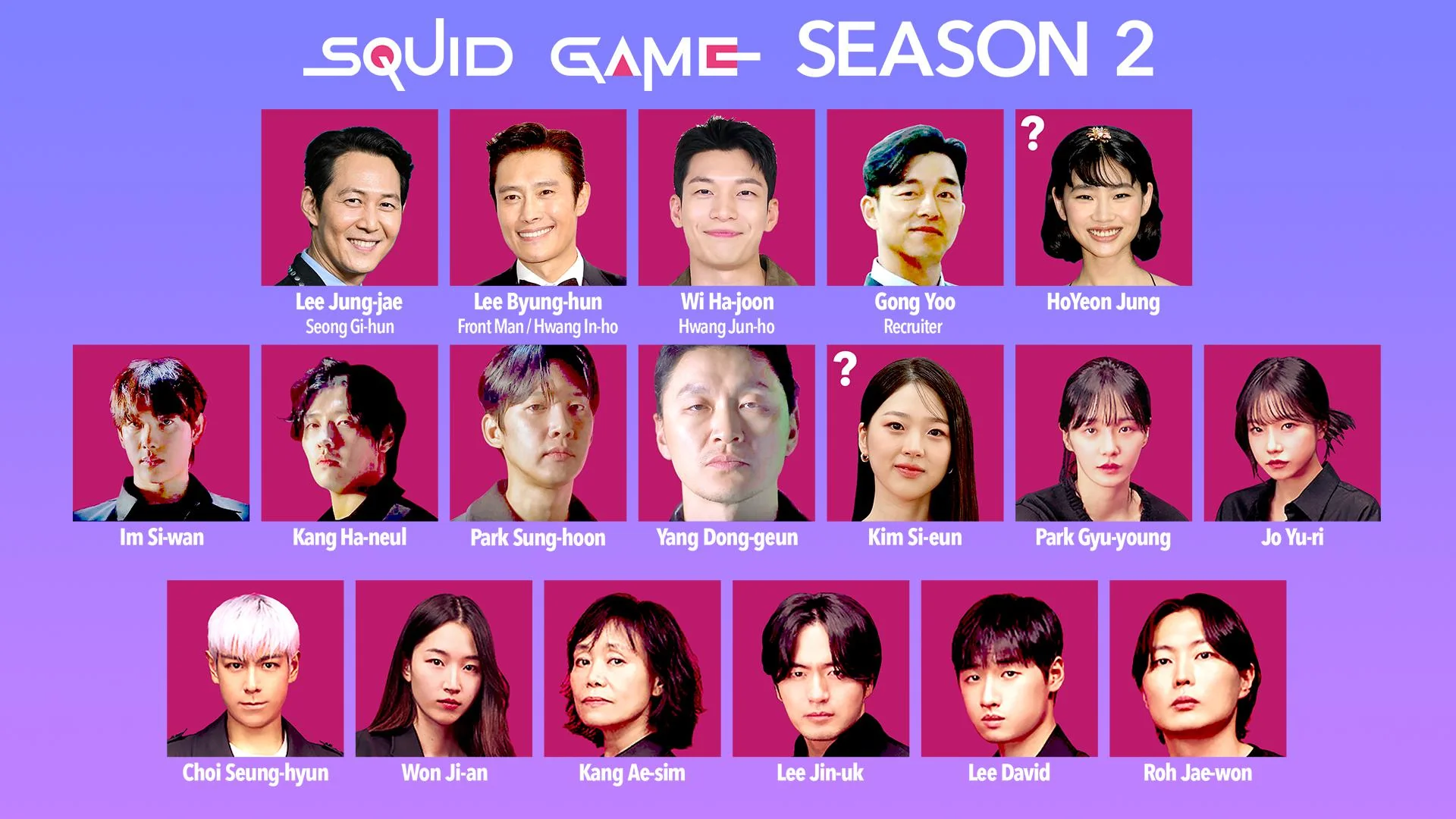Released on Netflix in September 2021, Squid Game quickly became a global cultural sensation, captivating audiences with its unique premise, intense drama, and thought-provoking themes. The South Korean survival drama series, directed by Hwang Dong-hyuk, skyrocketed to the top of Netflix’s rankings and quickly became one of the most-watched shows of all time.
But what is it about Squid Game that captured the world’s attention? In this blog post, we’ll dive deep into the reasons behind the series’ success, its cultural impact, and what made it so unforgettable.
1. The Intriguing Concept of Life or Death Games
At its core, Squid Game revolves around a deadly game in which 456 individuals, each facing financial hardship, are invited to participate in a series of childhood games. The catch? If they lose, they die. The contestants’ struggles and the moral dilemmas they face—whether to help others or fight for survival—form the emotional heart of the series.
The juxtaposition of innocent childhood games like “Red Light, Green Light” and “Tug-of-War” with brutal life-or-death consequences creates a surreal yet horrifying tension. The simplicity of the games, paired with their violent stakes, keeps viewers at the edge of their seats, wondering who will survive and what twists await around the corner.
2. Social Commentary and Critique of Inequality
While the premise of Squid Game is undeniably gripping, what truly elevates the series is its deeper social commentary. The show critiques economic inequality, class struggles, and the lengths to which individuals will go when pushed to the brink. Many of the characters are motivated by crushing financial difficulties, desperate to escape poverty, which makes them willing to risk everything—life included.
This commentary struck a chord with viewers, particularly in a time when global economic disparities are more pronounced than ever. The games in Squid Game can be seen as a metaphor for how the rich exploit the poor, using them as pawns in a game they can never win. The series highlights the dehumanizing nature of financial desperation and asks tough questions about societal values, greed, and corruption.
3. Compelling Characters with Complex Motivations
One of the strongest aspects of Squid Game is its diverse and well-developed cast of characters. From Seong Gi-hun (played by Lee Jung-jae), the down-on-his-luck protagonist, to the cunning and enigmatic player 067 (Kang Sae-byeok), the characters are multidimensional, making them relatable and emotionally compelling.
Each character has their own unique backstory, and viewers are drawn into their personal struggles as they fight to survive in the deadly competition. While some characters are driven by pure survival instincts, others form alliances or grapple with the moral weight of their actions. This complex interplay of motivations and relationships adds layers of emotional depth to the narrative, making the stakes feel even higher.
4. The Aesthetic and Visual Symbolism
Squid Game is not just a feast for the mind—it’s a visual spectacle. The show’s striking aesthetic, from the pastel-colored sets to the iconic guards’ masks and uniforms, is both unsettling and mesmerizing. The simplicity of the designs contrasts sharply with the brutal violence that occurs within these settings, creating an eerie atmosphere that lingers with viewers long after the credits roll.
The game arenas, with their bright, bold colors and childlike themes, emphasize the contrast between innocence and danger, making the show’s visual language a key element in conveying its themes. The symbolism of the various games also speaks volumes: for example, the game of “Red Light, Green Light” suggests a twisted version of the societal race, where the rich and powerful control the pace while the poor are left struggling to keep up.
5. The Global Impact: A Cultural Phenomenon
The success of Squid Game wasn’t just confined to South Korea—it became a global phenomenon, sparking conversations, memes, and discussions across social media platforms. The show’s reach was unparalleled, with people from different cultures connecting over the universal themes of survival, inequality, and human nature.
Squid Game also sparked numerous fan theories, analyses, and debates. Theories about the identity of the mysterious Front Man and questions about the true purpose of the games kept audiences engaged long after the final episode aired. The show’s impact also extended to fashion and pop culture, with iconic costumes like the red jumpsuits and masks becoming instant Halloween favorites and viral fashion statements.
6. The Future of Squid Game: What’s Next?
After the overwhelming success of the first season, fans are eagerly anticipating the future of Squid Game. Netflix confirmed a second season, with creator Hwang Dong-hyuk revealing that the next chapter will continue to explore the origins of the deadly game and the dark forces behind it. With the show’s massive popularity, it’s clear that Squid Game is not a passing trend but a cultural staple that will continue to captivate viewers worldwide.
